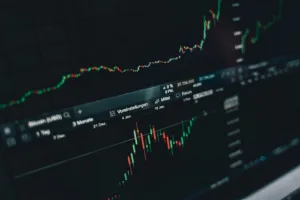
IT distributor Ingram Micro faced a 14-hour global outage on July 4, 2025, disrupting critical systems including Microsoft 365/Dropbox license management, hardware/software orders, and its XVantage AI platform. The incident, which left customers and partners unable to access services, sparked speculation about a potential cyberattack due to the company’s lack of official communication during the disruption1. Internal reports from Bulgaria’s service center indicated staff were instructed to disconnect laptops, further fueling concerns about systemic vulnerabilities in centralized IT infrastructure1.
Technical Impact and System Failures
The outage affected multiple facets of Ingram Micro’s operations. Partner portals, MSP tools, and transactional systems were rendered inaccessible, with the mobile app remaining functional but unable to process orders2. The XVantage platform, which integrates AI for supply chain automation, was among the systems impacted, highlighting dependencies on interconnected digital tools. Crowdsourced reports from MSPs on Reddit noted failures in backup license fulfillment and hardware procurement, exacerbating operational delays for downstream customers2.
Historical Context and Comparative Incidents
The Ingram Micro outage mirrors other high-profile disruptions in 2024, including CrowdStrike’s global Windows crashes caused by a faulty update and AT&T’s 12-hour network outage due to a misconfiguration3. These incidents underscore the risks of centralized systems and the cascading effects of single points of failure. Notably, Ingram Micro’s silence during the outage contrasts with CrowdStrike’s rapid, albeit flawed, response in 20243.
Regulatory and Antitrust Precedents
Ingram Micro’s operational challenges are compounded by its history of anticompetitive practices. In 2020, the French Competition Authority fined the company €62.9M for price-fixing and discriminatory supply allocation in collaboration with Apple4. The violations included fixed pricing for Apple Premium Resellers and preferential treatment for Apple Stores, raising questions about the resilience of monopolistic distribution networks4.
Relevance to Security Professionals
The outage serves as a case study in supply chain risk management and incident response. Key takeaways include:
- Transparency gaps: Ingram Micro’s lack of communication during the outage hindered mitigation efforts.
- Centralization risks: Dependencies on monolithic platforms like XVantage amplify disruption impacts.
- Regulatory scrutiny: Past fines highlight the need for compliance in distributed systems.
For threat researchers, the incident underscores the importance of monitoring third-party vendor outages as potential attack vectors or supply chain compromise indicators.
Conclusion
The Ingram Micro outage highlights systemic vulnerabilities in global IT distribution networks. While the root cause remains unconfirmed, the incident reinforces the need for decentralized alternatives and robust incident response protocols. Future analysis should focus on technical post-mortems and comparative studies with AI platform failures like ChatGPT’s June 2025 outage5.
References
- “Ingram Micro’s 14-Hour Global Blackout,” The Register, July 4, 2025.
- “Reddit Thread on Ingram Micro Outage,” July 3–4, 2025.
- “The 10 Biggest Cloud Outages of 2024,” CRN, 2024.
- “Fines Handed Down to Apple, Tech Data, and Ingram Micro,” French Competition Authority, March 2020.
- “ChatGPT Crashes: Implications for AI Crypto Projects,” Techpoint Africa, June 13, 2025.






